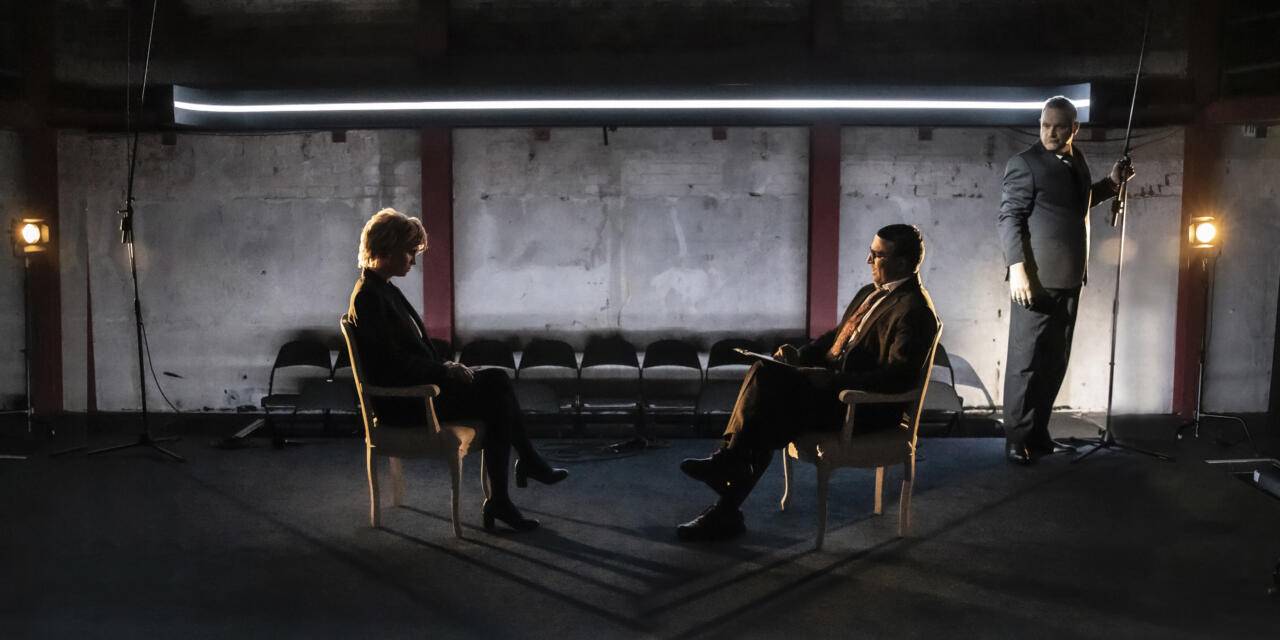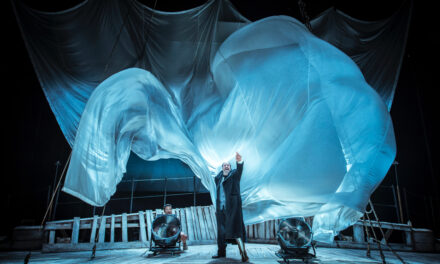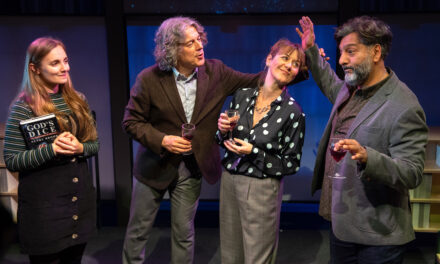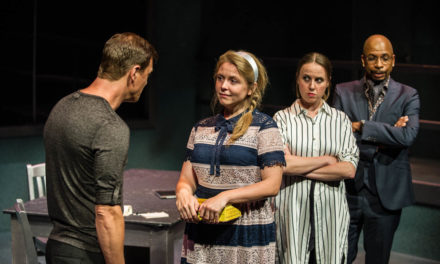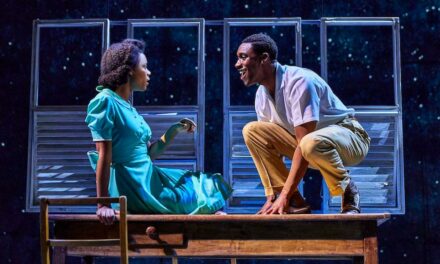One of the first questions anyone would ask after looking at a poster of Jonathan Maitland’s The Interview, is whether the actor playing Diana, Princess of Wales, will do a proper job of depicting her onstage.
In this production, directed by Michael Fentiman, the answer is a clear yes. Without completely impersonating this iconic historical figure, Yolanda Kettle does an incredible job, by highlighting the mannerisms and vocal tics of Diana. This is no easy feat, considering the intimate 200-seater studio at Park Theatre in London, where audiences occupy all four corners of the stage. Every head tilt, slouch, even the way her outfit rests on her thin frame, can be easily scrutinised every second––much like how the media viciously trained their eyes on the Princess herself throughout her life in the public eye.
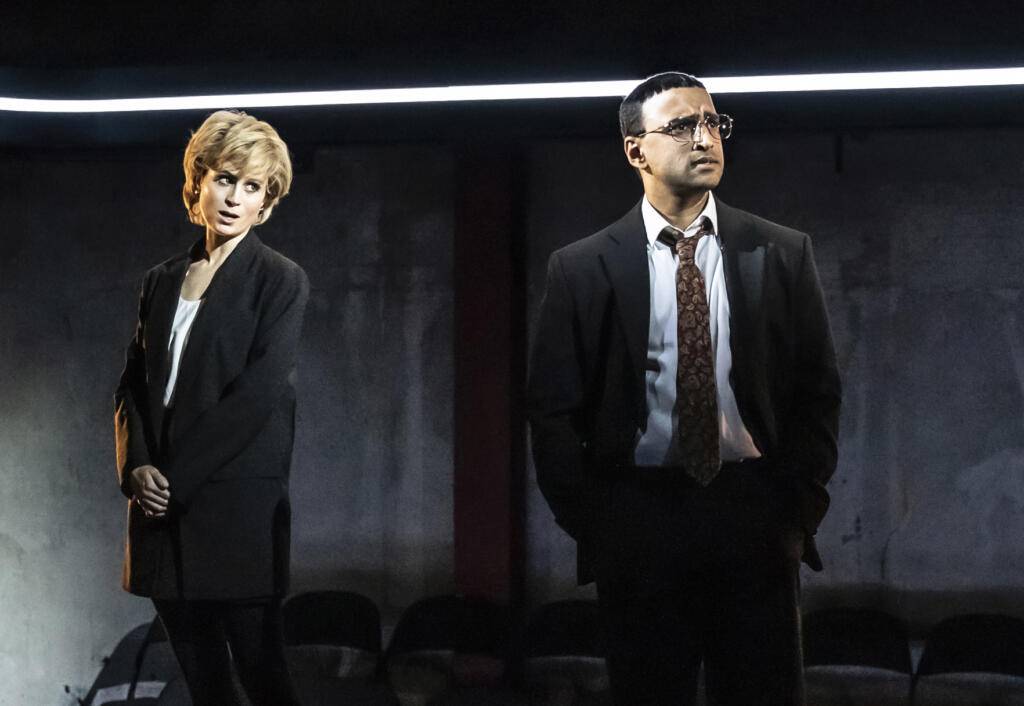
Diana (Yolanda Kettle) and Martin (Tibu Fortes). Pamela Raith Photography.
Some would say the success of this show would rest on the convincing portrayal of Diana, but Tibu Fortes serves an equally strong performance as the enigmatic Martin Bashir. Responsible for securing the interview, and being thrust into the spotlight not long after for his unethical methods in doing so, Martin is easily the villain in this circumstance. But to what extent does one go in search of truth?
Given that this play is based on one of the most sensational interviews ever broadcasted by the BBC, one would expect some sort of juicy reveal or dramatic conflict at some point in the play, and perhaps even feel disappointed by the lack of it. However, one could also argue that this highlights how playwright Maitland’s experience as an investigative journalist lends a unique voice to the theatre. Overall, there is no dramatic climax or plot twist, although Diana’s butler, Paul (Matthew Flynn), gets a few witty quips in as narrator. Still, the audience remains attentive voyeurs throughout the 90-minute production.
On the other hand, any attempt to veer into the theatrical ends up being rather out of place. Naomi Frederick and Ciarán Owens playing “Truth” and “Agreed Narrative” at one point in the second act ends up being a little too on-the-nose in trying to make a statement about the complexity of this saga. Frederick’s other role as Luciana, Diana’s lady-in-waiting, demonstrates how any interaction with the Princess, whether real or imagined, is infinitely more interesting than a third-person examination of events. Similarly, Owens’ role as BBC graphic designer Matt Wiessler reveals how Bashir’s rat-like cunning kickstarted a chain of events that resulted in his BAFTA-winning interview.
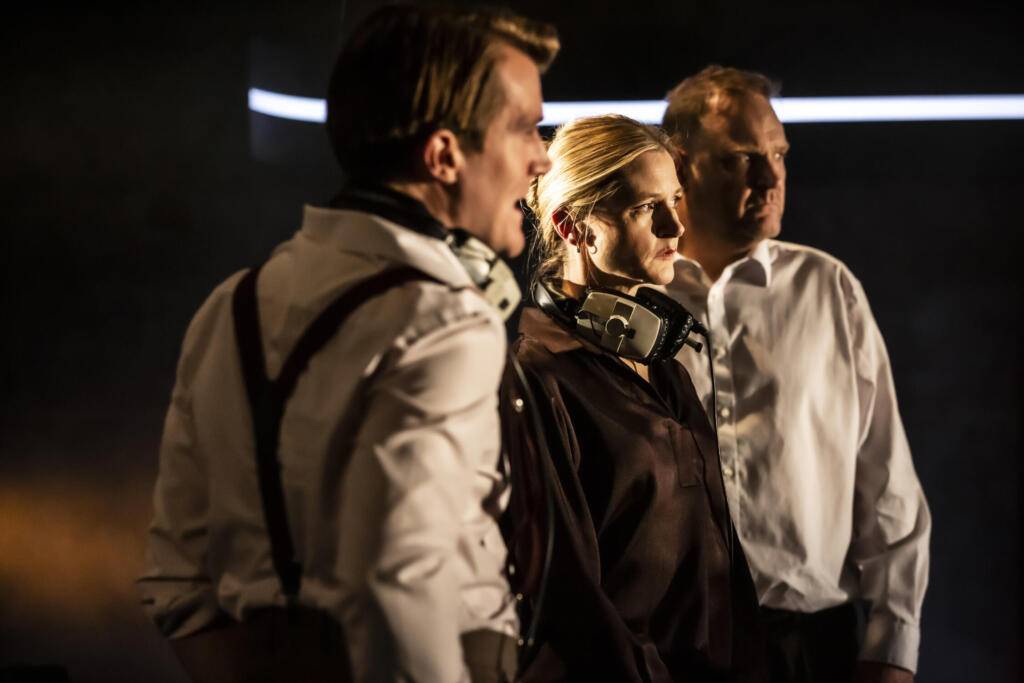
Ciarán Owens, Naomi Frederick, Matthew Flynn. Pamela Raith Photography.
Fact-finding and speculation blend into each other, much like how journalism and documentaries of our time are laced with sensationalism. In a scene, one of the characters exclaim, “we’re meant to report the news, not make them”.
What allows the story to take centre stage, is the cleverly pared-down set design by Sami Fendall. Apart from the occasional use of studio cameras and microphones in Act Two, Fendall successfully creates an air of secrecy without a single door or wall in sight. Lighting designer Emily Irish’s use of spotlights and torches play with what is revealed or shrouded in mystery.
In an era of falsehoods and with history repeating itself, The Interview raises pertinent questions about what integrity truly means––whether you are a reporter or a royal.
This post was written by the author in their personal capacity.The opinions expressed in this article are the author’s own and do not reflect the view of The Theatre Times, their staff or collaborators.
This post was written by Victoria Chen.
The views expressed here belong to the author and do not necessarily reflect our views and opinions.

